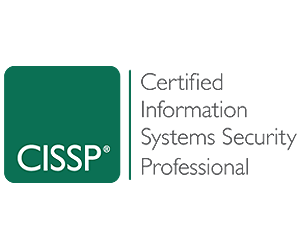
The Certified Information Systems Security Professional (CISSP) certification is designed for cybersecurity professionals seeking to validate their expertise across multiple domains. It covers areas such as security and risk management, asset security, security engineering, communications and network security, identity and access management, security assessment and testing, security operations, and software development security.
Benefits of CISSP Certification:
Comprehensive Cybersecurity Knowledge: The CISSP certification equips professionals with a deep understanding of cybersecurity principles, best practices, and industry standards. It covers a wide range of topics essential for effective information security management.
Industry Recognition: Holding the CISSP certification demonstrates a commitment to the highest standards of professionalism and proficiency in cybersecurity. It is globally recognized and respected by employers, government agencies, and industry peers.
Career Advancement Opportunities: The CISSP certification opens doors to advanced career opportunities in cybersecurity management, consulting, risk assessment, and security architecture. Employers value professionals who possess a holistic understanding of cybersecurity and can address complex security challenges.
Membership in a Global Community: CISSP-certified professionals become part of a global network of cybersecurity experts. This network provides opportunities for collaboration, knowledge sharing, and staying updated with emerging trends and developments in the field.
Requirements for CISSP Certification:
To earn the CISSP certification, candidates must fulfill the following requirements:
Experience: Possess a minimum of five years of cumulative, paid, full-time work experience in two or more of the eight CISSP Common Body of Knowledge (CBK) domains. Alternatively, candidates may qualify with four years of experience if they hold a relevant college degree or an approved credential.
Endorsement: Provide an endorsement from a CISSP-certified professional, attesting to the candidate’s professional experience and suitability for the certification.
CISSP Examination: Successfully pass the CISSP examination, which evaluates candidates’ knowledge across the eight domains of the CISSP CBK.
Code of Ethics: Agree to abide by the (ISC)² Code of Ethics, committing to act with integrity, professionalism, and a sense of responsibility in the field of cybersecurity.
Website Link:
To learn more about the Certified Information Systems Security Professional (CISSP) certification and access resources provided by (ISC)², please visit their official website: CISSP Certification Website







